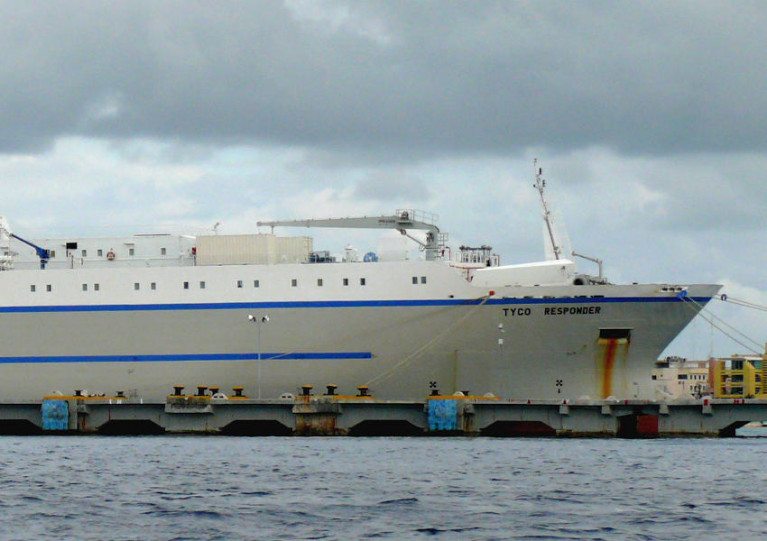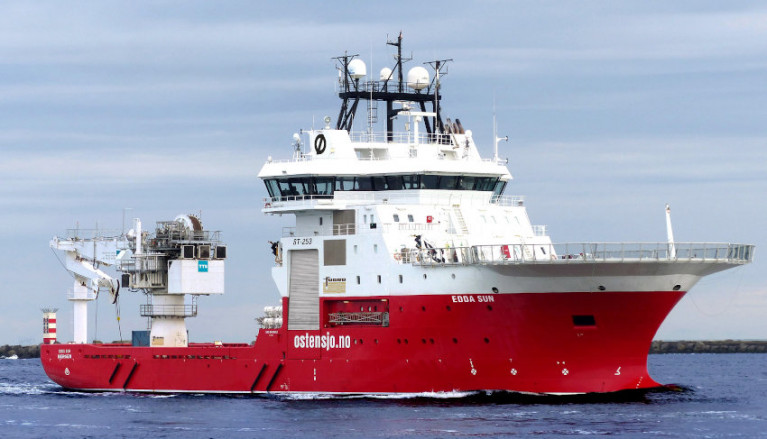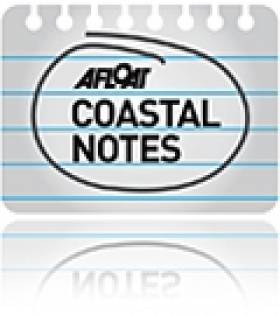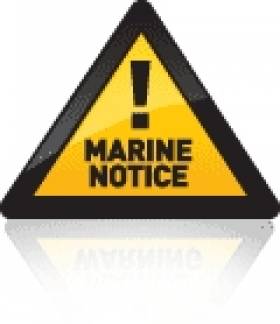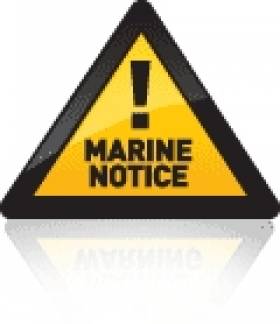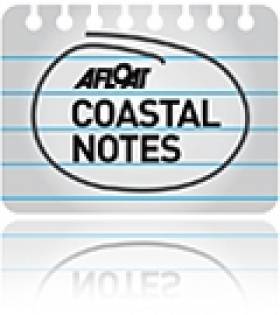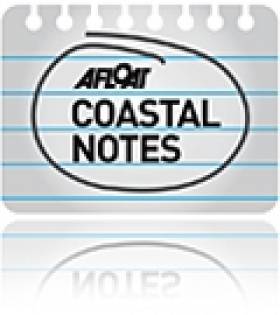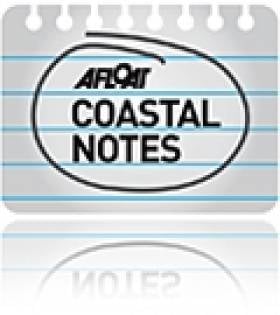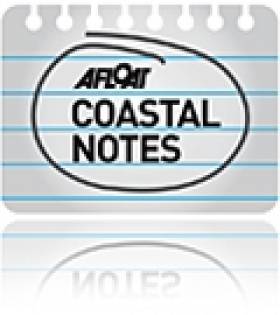Displaying items by tag: Corrib gas pipeline
Vermilion Exploration & Production Ireland Limited will carry out a campaign of inspection of the Corrib Gas Field near-shore pipeline and umbilical.
Weather permitting, these works are due to commence on Thursday 7 July and will last for approximately 10 days.
The near-shore pipeline and umbilical sections will be inspected from the nearest point accessible inshore at high tide progressing to offshore until a suitable overlap with the offshore inspection is achieved. Landfall is at Latitude 54° 16’ 59.799” N, Longitude 09° 49’ 14.528” W.
The operation will be conducted by three vessels. The Leah C (callsign EIQS5) will undertake the near-shore survey scope. The Macbel (callsign EIHL5) and the Blue Eagle (callsign EI6808) will provide safety and welfare support to Leah C.
Visual and acoustic surveys will be conducted by means of vessel-mounted sensors, cameras, ROV and towed side-scan sonar. Please note that all the equipment used will be vessel deployed. All three vessels will be listening on VHF Channel 16 throughout the project.
Contact details are included in Marine Notice No 44 of 2022, attached below.
Mariners off the Mayo coast are advised to be on the lookout for two separate undersea operations from next week.
From Sunday 17 May, America Europe Connect 2 will be installing a subsea fibre optic cable in Irish waters to Oldhead, near Westport.
The works from the CS Responder involve a pre-lay grapnel run until Tuesday 19 May, followed by the cable installation from Wednesday 20 May to Tuesday 16 June, weather permitting.
Three other vessels will also be involved in these works, fun details of which are included in Marine Notice No 21 of 2020 attached below.
Meanwhile, Vermillion Ireland will begin a near shore inspection survey of the Corrib gas pipeline and umbilical from next Wednesday 20 May.
Details of the locations and vessels involved can be found in Marine Notice No 20 of 2020, also attached below.
Inspection and maintenance on the Corrib gas pipeline and associated infrastructure is scheduled to take place from next week.
Conducted by Vermillion Ireland, the works from next Wednesday 6 May, weather permitting, are expected to last for around 20 days and comprise an inspection of the offshore pipeline and subsea structure as well as engineering work on well P3.
The vessel Edda Sun (callsign LARF7) will undertake these works using its own mounted equipment as well as that mounted on a remote operated vehicle (ROV). It will be listening on VHF Channel 16 throughout the project.
Full details of the works area are included in Marine Notice No 19 of 2020, a PDF of which is available to download below.
Mayo Fishermen Slate State Over Corrib Pipeline Damage
#Corrib - Mayo fishermen have criticised the State's response to the damaged Corrib Gas Field pipe, claiming that no Environmental Protection Agency (EPA) officials had yet been to the site, as The Irish Times reports.
Last Friday news emerged that a section of the outflow pipe from the controversial gas project had been dislodged from the seabed after it was spotted by local fishermen on the surface of Broadhaven Bay.
Recent stormy weather conditions in western coastal areas have been blamed for the damage, with the EPA quickly moving to quell any pollution concerns as the pipe was carrying "mostly rainwater".
However, the Erris Inshore Fishermen's Association – which withdrew co-operation with Shell over the North Mayo gas facility in 2011 – said yesterday (Monday 16 March) that the EPA had not sent its own officials to investigate the incident.
“This is what we fought against, and we are so lucky that there were no pollutants in the pipe,” said fisherman Pat O'Donnell, who was jailed for offences relating to protests against the gas scheme.
In response, the EPA stated that it did not "consider it necessary to send an inspector to view the pipe at this time".
The Irish Times has more on the story HERE.
Marine Notice: Corrib Gas Pipeline & Umbilical Inshore Maintenance & Inspection Survey
#MarineNotice - An inshore pipeline and umbilical maintenance and inspection survey, using vessel mounted acoustic survey equipment and a side scan sonar system, will take place from high water at Glengad, Co Mayo to an area close to the water outfall diffuser.
Works will commence around Monday 8 September and are expected to last for approximately two weeks.
The vessel to be used is the Naomh Aine (Callsign EIDU7). The Macbel (Callsign EIHL5) safety vessel will be operating with the Naomh Aine at all times.
All other vessels in the vicinity are advised to keep a wide berth from the work vessels.
Details of co-ordinates for the work area are included in Marine Notice No 53 of 2014, a PDF of which is available to read or download HERE.
#MarineNotice - The latest Marine Notice from the Department of Transport, Tourism and Sport (DTTAS) advises that the annual pipeline and umbilical maintenance inspection survey and flowline installation work will shortly be undertaken at the Corrib Gas Field.
Works will commence on Thursday 24 July 2014 at the Corrib field and along the pipeline corridor to the landfall at Broadhaven Bay, Co Mayo. The works and are expected to be completed by the end of the first week of September by the vessel Normand Reach (Call sign 2HMG8).
The pipeline and umbilical maintenance inspection covers an area of activity that stretches along the route of the existing Corrib offshore gas pipeline and umbilical route.
The work involves acoustic and visual survey of the pipeline and umbilical using equipment deployed from an ROV. The pipeline and umbilical surveys will be separate activities.
Meanwhile, the flowline installation at Wells P3 and P6 will take place within the 500m safety zone surrounding the Corrib subsea facilities.
Co-ordinates for all works and further details are included in Marine Notice No 43 of 2014, a PDF of which is available to read or download HERE.
Campaigners Call on Govt to Back Aarhus Convention
Grassroots campaigners have called on the Government to ratify a UN convention on public access to decision-making on environmental issues.
According to The Irish Times, activists at the first All-Ireland Community Campaigns Gathering in Dublin recently claimed that coastal communities would have been “spared a decade of distress” if the Aarhus convention had been adopted into Irish law.
Ireland is one of just a handful of European countries yet to ratify the Aarhus convention, first adopted in 1998. Former Environment Minister John Gormley left office before fulfilling his promise to do so.
Mamie Bowen of the Cork Harbour Alliance for a Safe Environment (Chase) cited the approval of a foreshore licence for the Corrib gas pipeline, despite local concerns, as an example of the Government allowing private companies to "impose dangerous projects on communities.”
The common-cause gathering was attended by community activists from Cork, Derry, Donegal, Dublin, Kerry, Limerick, Mayo and Tyrone.
The Irish Times has more on the story HERE.
Minister Grants Foreshore License for Corrib Pipeline
New Minister for the Environment Phil Hogan has signed off on a key foreshore licence to Shell Ireland, paving the way for the completion of the controversial Corrib gas project.
The Irish Times reports that the licence, subject to conditions, consents for the construction of the final 8km section of pipeline linking the Corrib gas field to Shell's onshore terminal at Ballinaboy. Co Mayo.
The scheme already has approval from An Bord Pleanála, and consents approved by former acting energy minister Pat Carey. But An Taisce has sought a judicial review of the planning decision, due before the High Court on Tuesday.
Still required by the developer before any work can begin are a revised emissions licence from the Environmental Protection Agency and a safety permit from the Commission for Energy Regulation under the Petroleum (Exploration and Extraction) Safety Act 2010.
The Irish Times has more on the story HERE.
- Natural Gas
- pipeline
- Corrib
- Corrib Gas field
- Corrib gas pipeline
- Shell Ireland
- Co Mayo
- Ballinaboy
- Minister for the Environment
- Phil Hogan
- Minister for Energy
- Pat Carey
- An Taisce
- An Bord Pleanála
- High Court
- judicial review
- Environmental Protection Agency
- Commission for Energy Regulation
- Petroleum (Exploration and Extraction) Safety Act 2010
Carey Courts Criticism Over Corrib Pipeline Approval
Controversy has arisen over the decision by outgoing Minister for Energy Pat Carey to grant key consents for the Corrib gas pipeline on the day of the general election.
According to the Irish Times, the Department of Energy said consent to construct the pipeline was issued "as a matter of course" after An Bord Pleanála approved the new pipeline route in January.
But Green Party sources told the paper that a recommendation on the consent application by Shell Ireland had not arrived on the desk of former Energy Minister Eamon Ryan before he left office that month.
Meanwhile, An Taisce is seeking a judicial review of the planning decision, which is believed to breach a number of EU directives.
As previously reported on Afloat.ie, planning for the last 8km stage of the Corrib pipeline - which runs through a special area of conversation - was only approved with 58 conditions related its construction and management.
Labour Party president Michael D Higgins told The Irish Times: “This is not a decision that one would regard as 'clearing one’s desk' as minister, as it has very serious implications."
The Irish Times has more on the story HERE.
Corrib Pipeline Go-Ahead Rests With Energy Minister
Energy Minister Eamon Ryan will issue a decision "in the coming weeks" on Shell Ireland's plans to complete the Corrib gas pipeline, The Irish Times reports.
The news follows yesterday's ruling by An Bord Pleanála which approved revised plans final section of the controversial pipeline.
Shell also requires licencing from Minsiter for the Environment John Gormley and the Environmental Protection Agency (EPA) for the completion of the pipeline under the conservation area of Sruwaddacon esturary to Shell's Ballinaboy gas terminal.
It would be a further two years before the pipeline is fully operational.
An Bord Pleanála's Inspector Martin Nolan commented that the "clarity and transparency" of Shell's revised application gave "confidence that the safety of the public is fully protected".
However planning was only approved with 58 conditions related to the construction and management of the 8.3km pipeline - including extra security at the landfall valve at Glengad, which has raised the ire of local residents at last year's oral hearings.
The Irish Times has more on the story HERE.



























